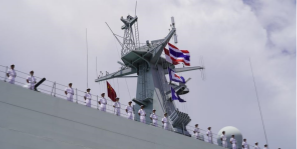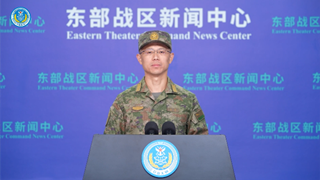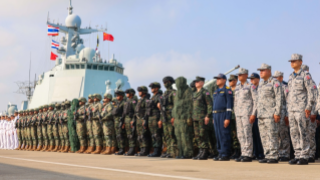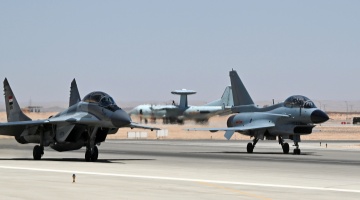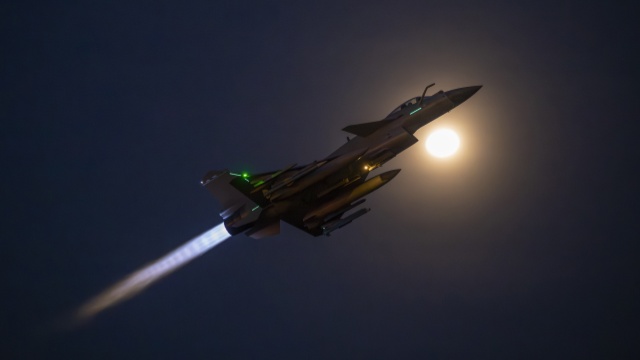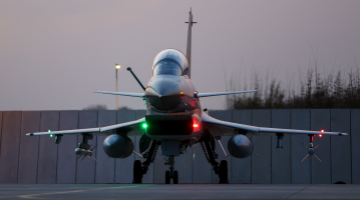By Ning Tuanhui
On November 17, the US Secretary of Defense Lloyd Austin, Japanese Defense Minister Gen Nakatani, and Australian Deputy Prime Minister and Minister for Defence Richard Marles held a trilateral meeting in Darwin, Australia, on strengthening the trilateral military and security cooperation.
It is announced in a joint statement issued after the meeting that there will be regular deployments of Japan's Amphibious Rapid Deployment Brigade to Darwin where it will conduct joint amphibious military exercises with the US and Australian forces to enhance the interoperability among the three sides. As an elite unit of the Japan Self-Defense Forces (JSDF), the deployment of the Amphibious Rapid Deployment Brigade to Darwin, a strategic military hub in northern Australia, marks a breakthrough in Japan-Australia military cooperation. The primary basis for this significant military cooperation is the Reciprocal Access Agreement (RAA) previously reached between the two countries.
In January 2022, Japan and Australia signed the RAA. According to then Japanese Prime Minister Fumio Kishida, the RAA is a landmark treaty that marked a new stage in Japan-Australia security cooperation. Meanwhile, then Australian Prime Minister Scott Morrison stated that the RAA would enable the two countries to achieve high-level cooperation. Thus, it is evident that the RAA holds significant importance for the enhancement of Japan-Australia military and security cooperation.
The RAA stipulates the status and treatment of the JSDF and the Australian Defence Force (ADF) when visiting each other's countries, simplifies the entry and exit procedures for visiting forces, and clarifies the rights and responsibilities of visiting forces in carrying weapons, ammunition, and conducting defense activities. In conclusion, the RAA provides significant convenience for mutual visits and joint military activities between the JSDF and the ADF. It not only facilitates more convenient joint military exercises between the two sides but also clears legal obstacles for the deployment of the JSDF to Darwin. It can be expected that in the future, Japan and Australia will engage in more extensive and closer military and security cooperation within both their bilateral and the trilateral US-Japan-Australia frameworks.
Why have Japan and Australia strengthened their military cooperation so rapidly?
Firstly, the rapid rapprochement between Japan and Australia is closely tied to the deployment of the US Indo-Pacific Strategy. In recent years, the US, in order to strengthen its strategic competition with China, has not only continued to solidify bilateral relations with its allies but also focused on creating various small-multilateral mechanisms to enhance interoperability among its allies, thereby boosting the cohesion and deterrence of the US alliance system. The US-Japan-Australia trilateral mechanism is a typical example. In the trilateral relationship, both the US-Japan and US-Australia military alliances have developed over several decades and fostered deep strategic trust and close ties. However, Japan-Australia military and security cooperation remains a weak link in the mechanism. From this perspective, the level of development in Japan-Australia relations largely determines the strength and effectiveness of the trilateral framework. Therefore, the US actively promotes Japan and Australia in military and security cooperation to strengthen the strategic cooperation and military interoperability of the trilateral mechanism.
Secondly, Japan obviously hopes to align with Australia to counter China through strengthening military and security cooperation with it. Under the influence of the US' strategic competition with China, both Japan and Australia are increasingly inclined to view China's development through the lens of great power rivalry, so they perceive China's military modernization as a "challenge" and a "threat," seeking to address this by strengthening bilateral military and security cooperation. Addressing the so-called "China challenge" remains an important topic in various high-level consultations between Japan and Australia. During the Japan-Australia 2+2 Foreign and Defence Ministerial Consultations in September 2024, the two sides focused on responding to China's attempts to unilaterally change the status quo by force. Then Japanese Defense Minister, Minoru Kihara, stated bluntly that Japan and Australia both have strong concerns regarding China's military activities.
Finally, the deepening of military cooperation between Japan and Australia also reflects considerations to offset the uncertainties in US strategy. Both Japan and Australia rely on the US for security, so the US security commitments have a significant impact on the strategic direction chosen by the two countries. However, with the re-election of Donald Trump as US president and the resurgence of isolationism and unilateralism as dominant political ideologies in the US, Japan and Australia have developed strong doubts about the commitments of the US to fulfilling its security promises.
In the context of uncertainties surrounding US strategy, Japan and Australia are attempting to mitigate potential strategic risks by strengthening their cooperation and relying on each other. As a result, the connotation of the Japan-Australia special strategic partnership will continue to deepen, with their military relations becoming closer and progressively moving towards the direction of a "quasi-alliance status."
(The author is an associate researcher of China Institute of International Studies.)
Editor's note: Originally published on china.com.cn, this article is translated from Chinese into English and edited by the China Military Online. The information and opinions in this article do not necessarily reflect the views of eng.chinamil.com.cn.







